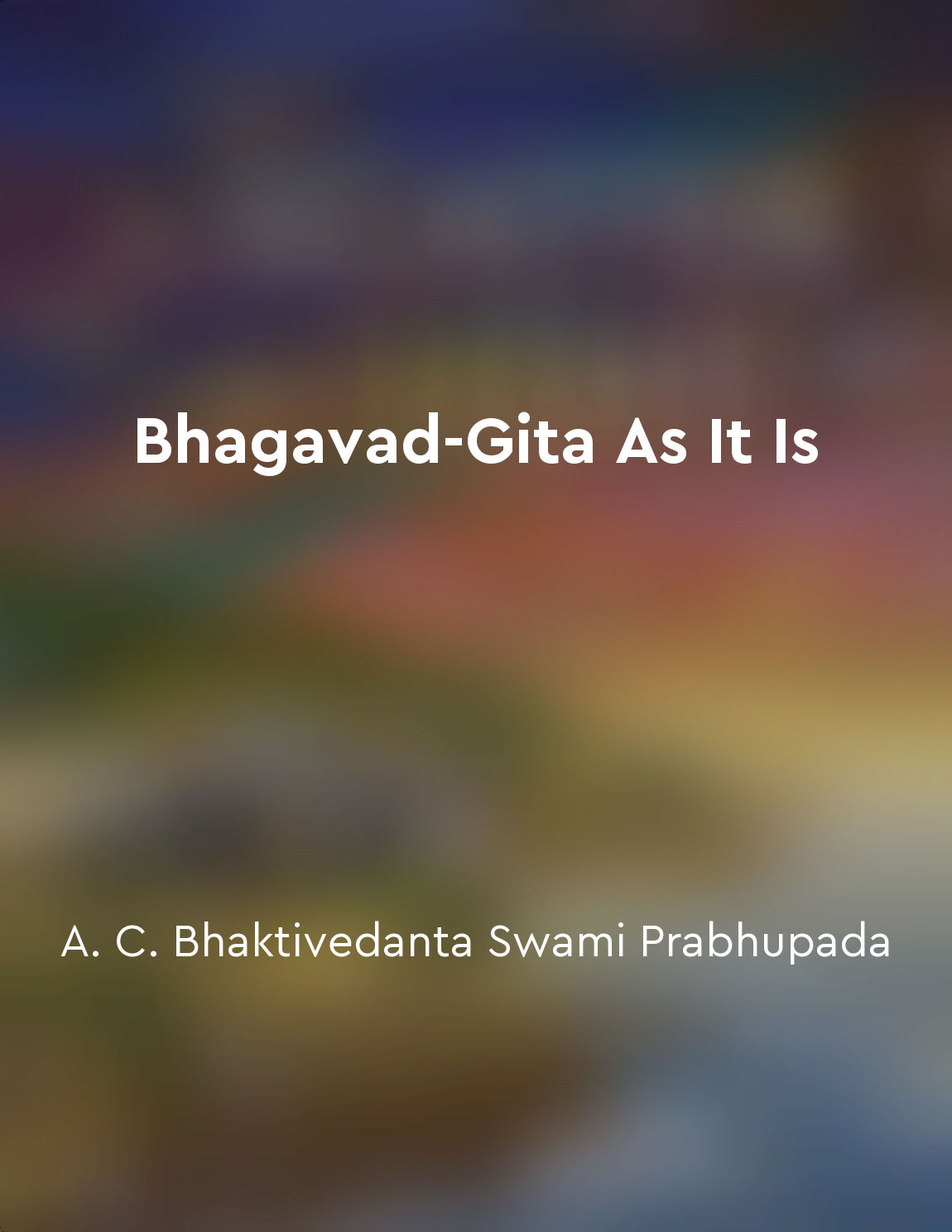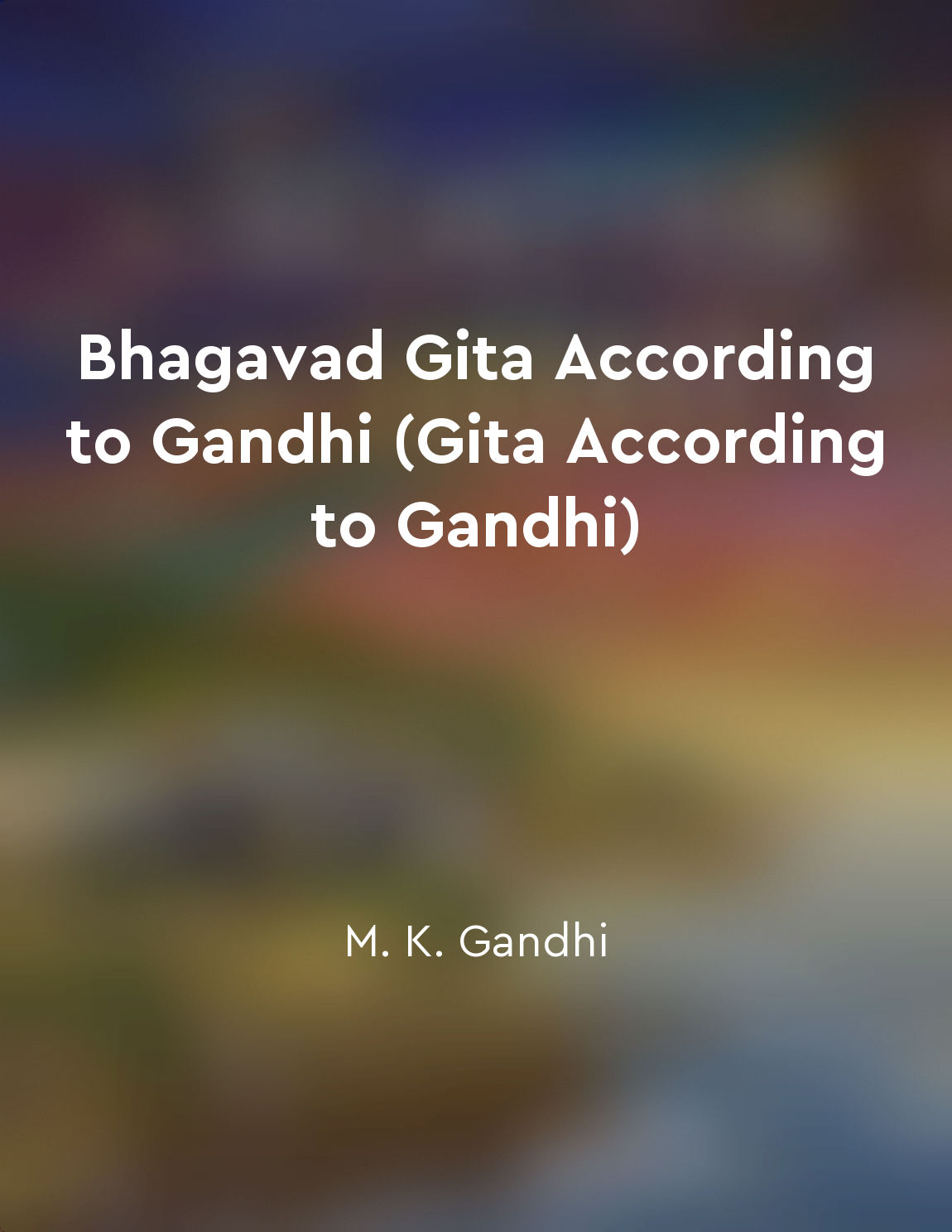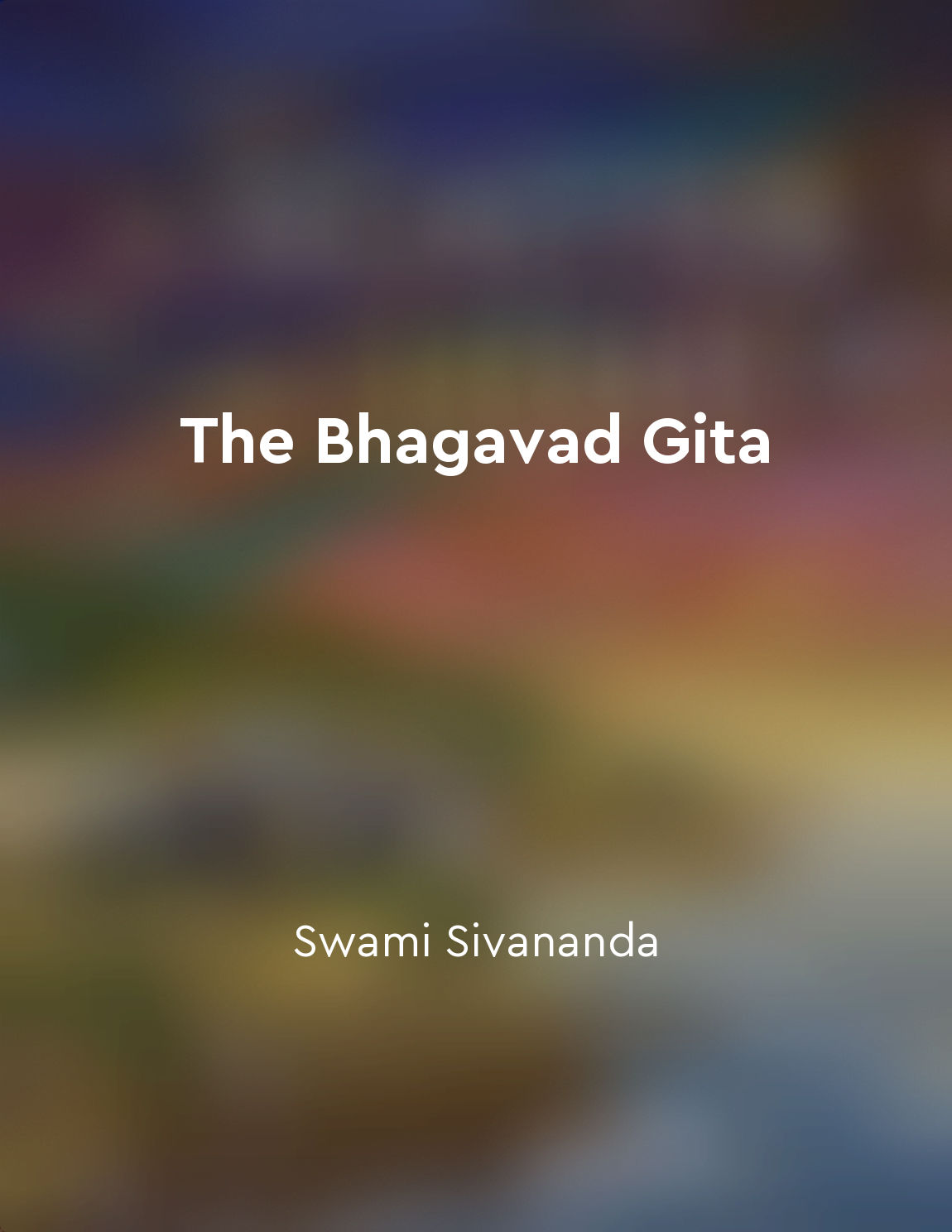Live a life of righteousness and virtue from "summary" of Bhagavad Gita According to Gandhi (Gita According to Gandhi) by M. K. Gandhi
To live a life of righteousness and virtue is to follow the path of duty and selflessness, as outlined in the Bhagavad Gita. According to the teachings of the Gita, one must perform their duties without attachment to the results of their actions. This means acting with pure intentions, without seeking personal gain or recognition. By living a life of righteousness and virtue, one can achieve a sense of inner peace and fulfillment. When one acts in accordance with their dharma, or duty, they are able to transcend their ego and connect with a higher power. This spiritual connection brings a sense of purpose and meaning to one's life. Living a life of righteousness and virtue also involves treating others with kindness and compassion. By practicing ahimsa, or non-violence, one can cultivate a sense of empathy and understanding towards all living beings. This includes not only refraining from physical harm, but also from harmful thoughts and words. In order to cultivate righteousness and virtue, one must also practice self-discipline and self-control. This means resisting the temptations of the ego and staying true to one's principles, even in the face of adversity. By mastering the mind and emotions, one can overcome the obstacles that prevent them from living a virtuous life.- Living a life of righteousness and virtue is a lifelong journey of self-discovery and self-improvement. It requires constant self-reflection and introspection, as well as a willingness to learn from one's mistakes. By striving to be the best version of oneself, one can make a positive impact on the world and leave a lasting legacy of love and compassion.
Similar Posts

Control of the mind and senses
The mind is the controller of the senses. It is said that one who can control the mind can conquer the whole world. The mind is...
Accept what cannot be changed
We must remember that life is unpredictable and full of unexpected events. No matter how hard we try, there are some things tha...
Buddha's teachings are not based on beliefs but on experience
The teachings of Buddha are not about believing in something outside of yourself. They are not about following blindly some dog...

Control the senses and the mind
The Bhagavad Gita teaches us to control our senses and our mind. When our senses are under control, we are able to focus on our...

Detachment from material desires
The concept of detachment from material desires is a fundamental teaching in the Bhagavad-Gita. It emphasizes the importance of...

Attain ultimate peace and liberation
The concept of attaining ultimate peace and liberation is central to the teachings of the Bhagavad Gita. According to the Gita,...

Conquering the ego
The ego is an obstacle that prevents one from realizing the true nature of the Self. It is the sense of "I" and "mine" that cre...

Selfinterest is balanced with concern for others in moral behavior
In considering the nature of moral behavior, we must acknowledge the role that self-interest plays in our actions. It is undoub...
The Geeta teaches the path to ultimate liberation and union with the divine
The Bhagavad Gita, often referred to simply as the Geeta, is a sacred scripture that imparts profound wisdom and guidance on ho...
Embracing one's dharma leads to spiritual evolution
The idea of embracing one's dharma is central to the teachings of the Bhagavad Gita. Dharma refers to one's duty or moral respo...

